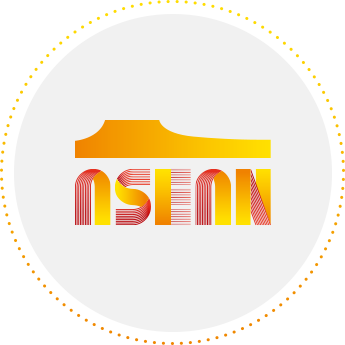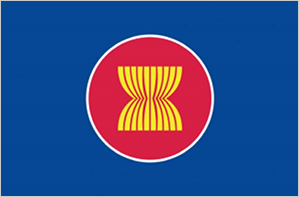
 The ASEAN emblem represents a stable, peaceful, united and dynamic ASEAN. The colors of the flag—blue, red, white and yellow—represent the main colors of the flags of all the ASEAN Member States. The blue represents peace and stability. Red depicts courage and dynamism, white shows purity and yellow symbolizes prosperity.
The ASEAN emblem represents a stable, peaceful, united and dynamic ASEAN. The colors of the flag—blue, red, white and yellow—represent the main colors of the flags of all the ASEAN Member States. The blue represents peace and stability. Red depicts courage and dynamism, white shows purity and yellow symbolizes prosperity.Regularized Post Ministerial Conference (PMC), which the ten ASEAN member states and its ten dialogue partners participated since 1979
Korea hosts an ASEAN-ROK Foreign Ministers' Meeting around July and August every year, in connection with an ASEAN-related summit held at the country holding the ASEAN Chairmanship
During the 7th ASEAN Plus Three Summit in October 2003, it was discussed to hold the AEM-ROK Consultations in line with the ASEAN Economic Ministers' Meeting in 2004
ASEAN-Korea Free Trade Agreement and the Regional Comprehensive Economic Partnership were the main agendas
A deputy ministerial council that examines the cooperation relationship between ASEAN and Korea and discusses ways to promote cooperation in all areas of ASEAN-ROK politics, security, economy, society and culture.
Established to discuss ASEAN-ROK cooperation in the fields of politics, economy, culture, environment, and education, held every first half of the year at the ASEAN Secretariat in Jakarta; committee name changed from Joint Planning and Review Committee (JPRC) in 2014
JCC Working Group: Inspects cooperation projects executed by utilizing ASEAN-ROK cooperation funds granted by Korea